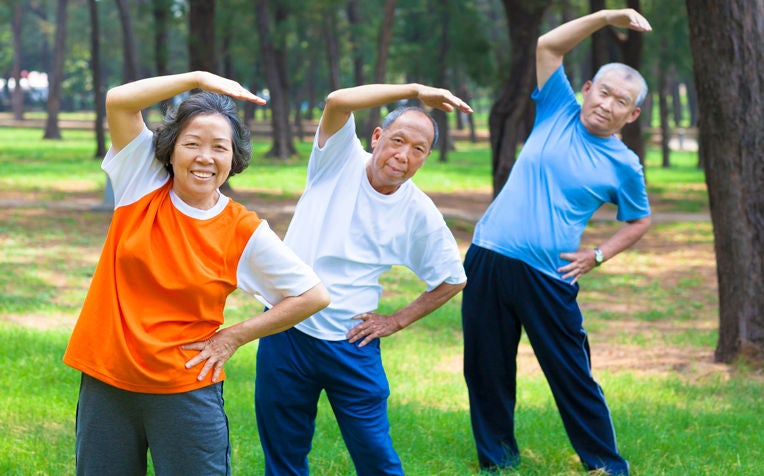
Elderly falls can be reduced by encouraging them to stay active.
As a caregiver, it is important to know the steps you can take to help prevent your elderly loved ones from suffering a fall.
Here are some tips provided by Ms Heng Wan Xuan, Physiotherapist from the
Department of Physiotherapy at
Singapore General Hospital (SGH), a member of the
SingHealth group.
What caregivers can do to help prevent falls
1. Be mindful of medications and side effects
Properly managing your loved one’s medical condition and making sure that he or she takes medication on time contributes to fall prevention. Also, take note of medicines or combinations of medicines that cause side effects such as dizziness or drowsiness. Taking more than 4 medicines pose a risk of falls for elderly. If your loved ones are taking more than 4 medicines, do get a doctor in charge to review the medication.
2. Promote a healthy and active lifestyle
Encourage the elderly to maintain a balanced diet and stay active, as this can help strengthen muscles and reduce the risk of falls. Gentle exercises that are safe for seniors include walking, water workouts and tai chi, but consult your doctor first on which exercise is best suited for your loved one.
Having regular eye checks for medical conditions like glaucoma or cataracts also plays an important part in fall prevention.
Check out this video for more tips on how to prevent falls!
3. Ensure use of proper footwear
Wearing proper footwear can go a long way in terms of falls prevention. Floppy slippers and shoes with slick soles are definite no-nos. Instead, seniors are advised to wear shoes with laces or Velcro fasteners. Look for non-slip, textured soles, a broad, low heel and good ankle support for added stability.
4. Home modification
Rearrange furniture to make clear paths for walking. Avoid leaving phone cords and loose wires on the floor. Keep clutter away from the floor and clean up spills immediately to keep the floor dry. Lay non-slip mats on bathroom floors to avoid slipping on wet surfaces. Keep frequently used items at places within easy reach to avoid climbing on stools or unsteady surfaces.
5. Encourage use of assistive devices
Seniors that have difficulty walking steadily may use walking aids such as a cane or walker to aid in the reduction of falls. However, using the wrong aid can increase injuries from falls. Do speak to the physiotherapist on the appropriate aid to use.
6. Visit a falls clinic
If you suspect that an elderly loved one is prone to falls, don’t wait for an accident to happen before you act. Get the assistance you need by visiting a falls clinic like the Falls and Mobility Clinic at SGH.
“At the Falls and Mobility Clinic, patients are assessed for fall risk factors such as balance, mobility, muscle strength, reaction time and ability to use walking aids safely. We prescribe tailored exercise programme to target the risk factor identified,” says Ms Heng.
“Physiotherapy not only improves quality of life for fall-prone seniors, but also helps put caregivers at ease.”
Ref: S13
More articles on healthy ageing:
5 Easy Ways Seniors Can Stay Healthy
7 Common Ageing Problems Faced by Seniors
Must-Know Nutrition and Diet Tips for Seniors
Why Seniors Need to Be Vaccinated
Contributed by















 Get it on Google Play
Get it on Google Play